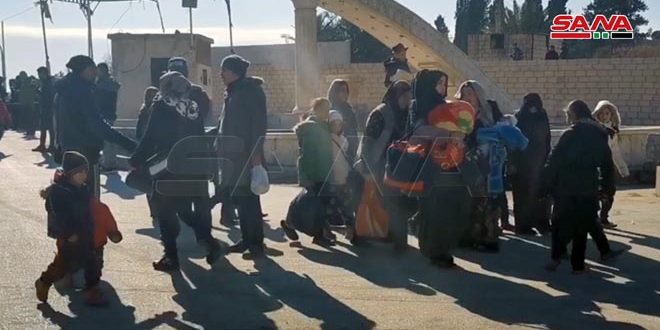Violations of terrorist factions
The violations that have occurred and are still continuing in the city and its countryside have become a vital topic for local, Syrian and international human rights organizations. According to the founding member of the local “tazur” association for the victims of the Turkish military invasion in northeastern Syria, Izz al-Din Saleh, the Turkish invasion led to the displacement of more than 165,000 people from Ras al-Ain and its countryside, and that only less than 15 percent of the population has returned so far. In contrast, more than two thousand families of terrorists have been settled in the homes of displaced civilians, in addition to the settlement of more than 55 women and children of ISIS terrorist members (mostly Iraqis) in captured houses within the city.
The same association published new statistics of violations by the factions of the so-called “Syrian National Army” since the occupation of Ras al-Ain in October 2019 until September 2022, showing the arrest of 400 people, including 34 women, and recorded 216 cases of torture, at least five of whom died.
In addition to the presence of more than 100 detainees who were transferred to Turkey (more than half of them are civilians) who were tried with various sentences. The association documented the killing of 60 civilians, including women.
Saleh says that what has been documented is only a small part of the widespread and systematic violations committed in Ras al-Ain by Turkey and the terrorist factions supported by it, with the aim of bringing about a demographic change in the structure of society and Turkifying the region by forcing citizens to hold the Turkish identity.
Policies to “Turkify” the region
In the first days at the end of the aggression under the name of “military operation”, Turkish occupying forces and terrorist factions affiliated with Ankara raised the Turkish flag over government compounds in Ras al-Ain and its towns, then Turkish relief organizations such as (AFAD), (IHH) and the Turkish Red Crescent entered the city , under the pretext of distributing relief materials to the remaining residents in those areas. It established parallel military points for its occupying army there, and Turkish institutions entered Syrian territory such as the Turkish Grain Corporation TMO and forcibly bought the wheat crop from the people.
Reem Haddad
Editor-in-chief
Special thanks to Al Thawra Newspaper that carried out the interviews in al Haskeh

